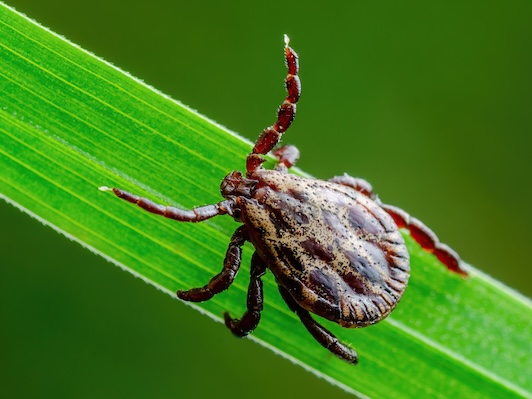W tick-borne viruses such as Powassan virus increasing in Canada, clinicians should consider these infections in patients with encephalitis, as a case study shows in CMAJ (Canadian Medical Association Journal).
Although rare, Powassan virus is serious, with a death rate of 10 per cent –15 per cent in people with encephalitis, and it can cause lingering health effects after infection. The virus can transmit within 15 minutes of tick attachment, and symptoms can develop one-to-five weeks later.
In this case study, a 9-year-old child with up-to-date vaccinations was admitted to hospital after a visit to an emergency department for fever, neck stiffness, and headache that developed 1 week after a camping trip in northern Ontario.
Physicians conducted extensive testing for a range of illnesses including Epstein–Barr virus, Lyme disease, bacterial meningitis, and more. They also sent serology samples for testing at the Public Health Ontario laboratory, but the results were not available for several weeks. The eventual diagnosis, confirmed after the child was discharged, was Powassan virus.
Cases of encephalitis from Powassan virus and other tick-borne illnesses have been increasing in the last 20 years, and the authors emphasize that the consideration of these is important. Recent travel to an endemic region, outdoor activity such as hiking and camping, and possible exposure to animals or ticks are important in
helping diagnose.
“Given the nonspecific clinical features, laboratory investigations, neuroimaging findings of encephalitis, as well as the effects of climate change on tick-borne infection rates, broad arbovirus serology testing should be considered for patients presenting with encephalitis, particularly in the summer and fall,” writes Dr. Zachary Blatman, a senior pediatric resident physician at CHEO, Ottawa, Ontario, with coauthors.
“Powassan virus encephalitis in a 9-year-old” was published August 26, 2024.


